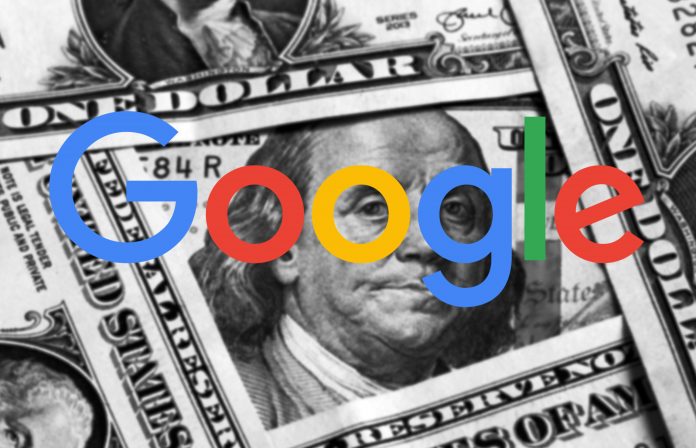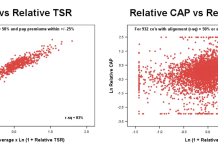The European Commission has fined Google £1.29 billion for breaching EU antitrust rules, due to abusive online advertising conduct for over 10 years
Google has abused its market dominance by imposing a number of restrictive clauses in contracts with third-party websites which prevented Google’s rivals from placing their search adverts on these websites.
Commissioner Margrethe Vestager, in charge of competition policy, said:
“Today the Commission has fined Google €1.49 billion (£1.29 billion) for illegal misuse of its dominant position in the market for the brokering of online search adverts. Google has cemented its dominance in online search adverts and shielded itself from competitive pressure by imposing anti-competitive contractual restrictions on third-party websites.
“This is illegal under EU antitrust rules. The misconduct lasted over 10 years and denied other companies the possibility to compete on the merits and to innovate – and consumers the benefits of competition.”
Article 102 of the Treaty on the Functioning of the European Union (TFEU) and Article 54 of the EEA Agreement prohibit the abuse of a dominant position.
Google’s strategy for online search advertising intermediation
Websites such as newspaper websites, blogs or travel sites aggregators often have a search function embedded. When a user searches using this search function, the website delivers both search results and search adverts, which appear alongside the search result.
Through AdSense for Search, Google provides these search adverts to owners of “publisher” websites. Google is an intermediary, like an advertising broker, between advertisers and website owners that want to profit from the space around their search results pages. Therefore, AdSense for Search works as an online search advertising intermediation platform.
Google was by far the strongest player in online search advertising intermediation in the European Economic Area (EEA), with a market share above 70% from 2006 to 2016. In 2016 Google also held market shares generally above 90% in the national markets for general search and above 75% in most of the national markets for online search advertising, where it is present with its flagship product, the Google search engine, which provides search results to consumers.
Google also held market shares generally above 90% in the national markets for general search
It is not possible for competitors in online search advertising such as Microsoft and Yahoo to sell advertising space in Google’s own search engine results pages.
Therefore, third-party websites represent an important entry point for these other suppliers of online search advertising intermediation services to grow their business and try to compete with Google.
Google’s provision of online search advertising intermediation services to the most commercially important publishers took place via agreements that were individually negotiated.
The Commission has reviewed hundreds of such agreements in the course of its investigation and found that:
- Starting in 2006, Google included exclusivity clauses in its contracts. This meant that publishers were prohibited from placing any search adverts from competitors on their search results pages. The decision concerns publishers whose agreements with Google required such exclusivity for all their websites.
- As of March 2009, Google gradually began replacing the exclusivity clauses with so-called “Premium Placement” clauses. These required publishers to reserve the most profitable space on their search results pages for Google’s adverts and request a minimum number of Google adverts. As a result, Google’s competitors were prevented from placing their search adverts in the most visible and clicked on parts of the websites’ search results pages.
- As of March 2009, Google also included clauses requiring publishers to seek written approval from Google before making changes to the way in which any rival adverts were displayed. This meant that Google could control how attractive, and therefore clicked on, competing search adverts could be.
Therefore, Google first imposed an exclusive supply obligation, which prevented competitors from placing any search adverts on the commercially most significant websites.
Then, Google introduced what it called its “relaxed exclusivity” strategy aimed at reserving for its own search adverts the most valuable positions and at controlling competing adverts’ performance.
Google’s practices covered over half the market by turnover throughout most of the period.
Google’s rivals were not able to compete on the merits, either because there was an outright prohibition for them to appear on publisher websites or because Google reserved for itself by far the most valuable commercial space on those websites, while at the same time controlling how rival search adverts could appear.
Breach of EU antitrust rules
Google’s practices amount to an abuse of Google’s dominant position in the online search advertising intermediation market by preventing competition on the merits.
Market dominance is, as such, not illegal under EU antitrust rules.
However, dominant companies have a special responsibility not to abuse their powerful market position by restricting competition, either in the market where they are dominant or in separate markets.
dominant companies have a special responsibility not to abuse their powerful market position by restricting competition
Today’s decision concludes that Google is dominant in the market for online search advertising intermediation in the EEA since at least 2006. This is based in particular on Google’s very high market shares, exceeding 85% for most of the period. The market is also characterised by high barriers to entry.
These include very significant initial and ongoing investments required to develop and maintain general search technology, a search advertising platform, and a sufficiently large portfolio of both publishers and advertisers.
Google has abused this market dominance by preventing rivals from competing in the online search advertising intermediation market.
Based on a broad range of evidence, the Commission found that Google’s conduct harmed competition and consumers, and stifled innovation. Google’s rivals were unable to grow and offer alternative online search advertising intermediation services to those of Google. As a result, owners of websites had limited options for monetizing space on these websites and were forced to rely almost solely on Google.
Google did not demonstrate that the clauses created any efficiencies capable of justifying its practices.
Consequences of the Decision
The Commission’s fine of €1,494,459,000 (~£1,288,663,476.91), 1.29% of Google’s turnover in 2018, takes account of the duration and gravity of the infringement. In accordance with the Commission’s 2006 Guidelines on fines, the fine has been calculated on the basis of the value of Google’s revenue from online search advertising intermediation in the EEA.
Google ceased the illegal practices a few months after the Commission issued in July 2016a Statement of Objections concerning this case. The decision requires Google to, at a minimum, stop its illegal conduct, to the extent it has not already done so, and to refrain from any measure that has the same or equivalent object or effect.
Finally, Google is also liable to face civil actions for damages that can be brought before the courts of the Member States by any person or business affected by its anti-competitive behaviour. The new EU Antitrust Damages Directive makes it easier for victims of anti-competitive practices to obtain damages.
Other Google cases
In June 2017, the Commission fined Google €2.42 billion (~£2.02 billion) for abusing its dominance as a search engine by giving an illegal advantage to Google’s own comparison shopping service.
In July 2018, the Commission fined Google €4.34 billion (~£3.74 billion) for illegal practices regarding Android mobile devices to strengthen the dominance of Google’s search engine. The European Commission has fined Google €1.49 billion (~£1.28 billion) for breaching EU antitrust rules.











